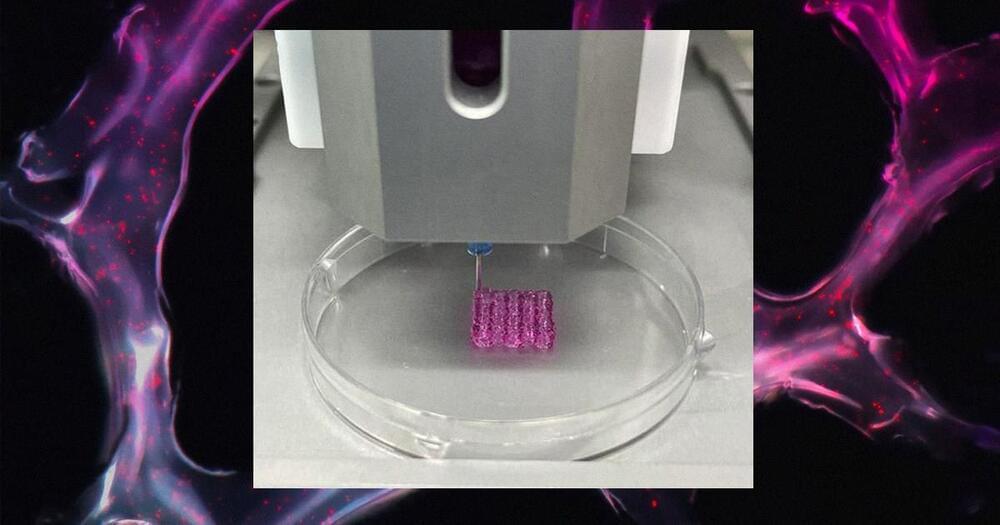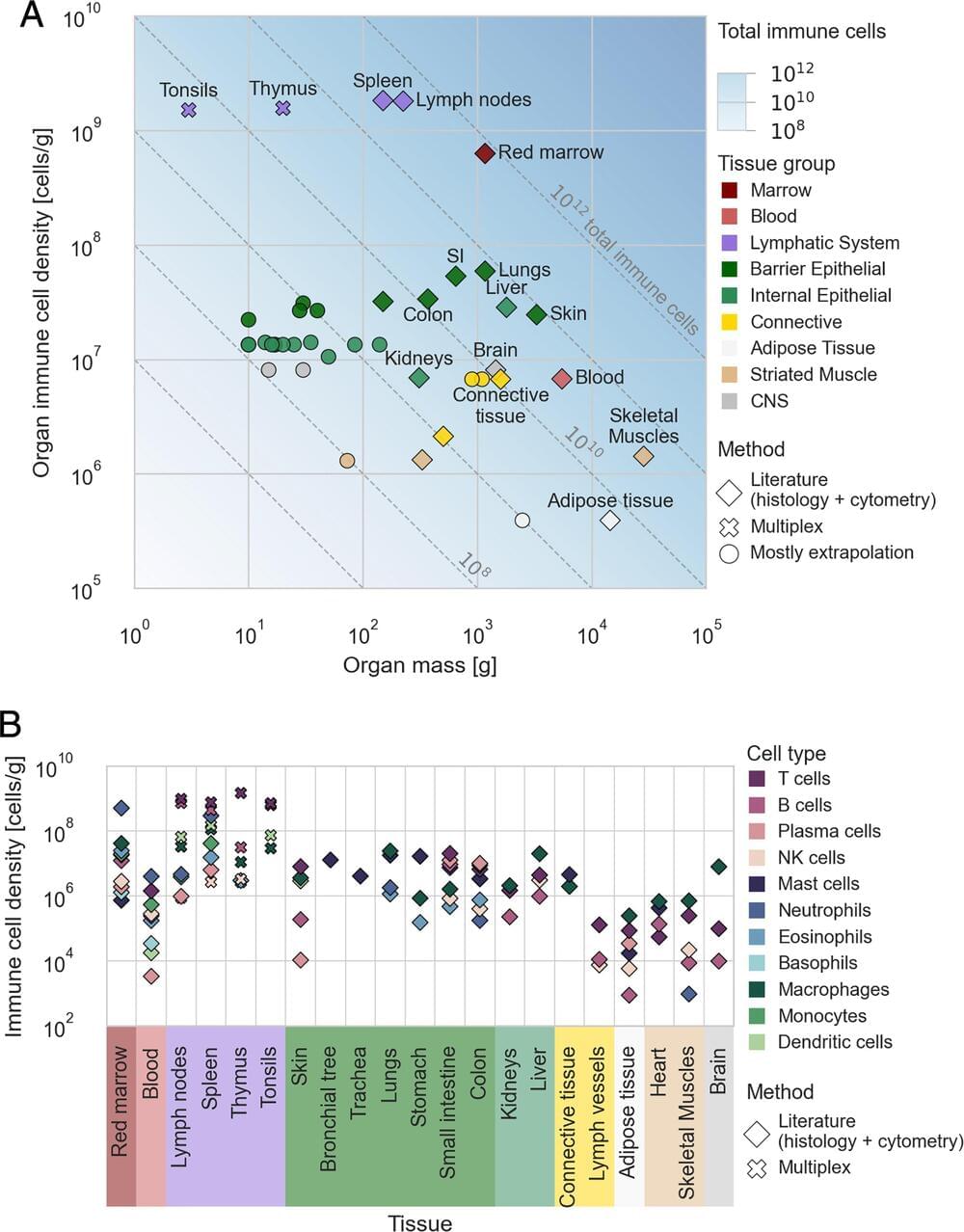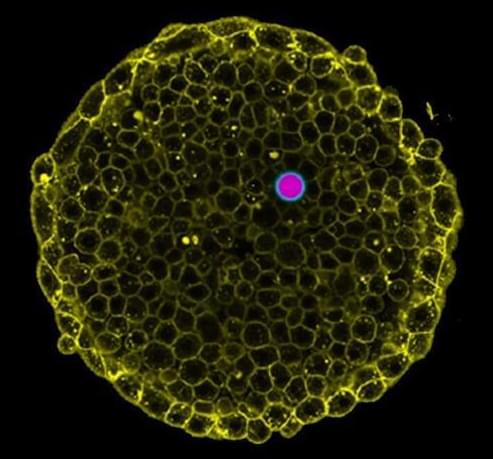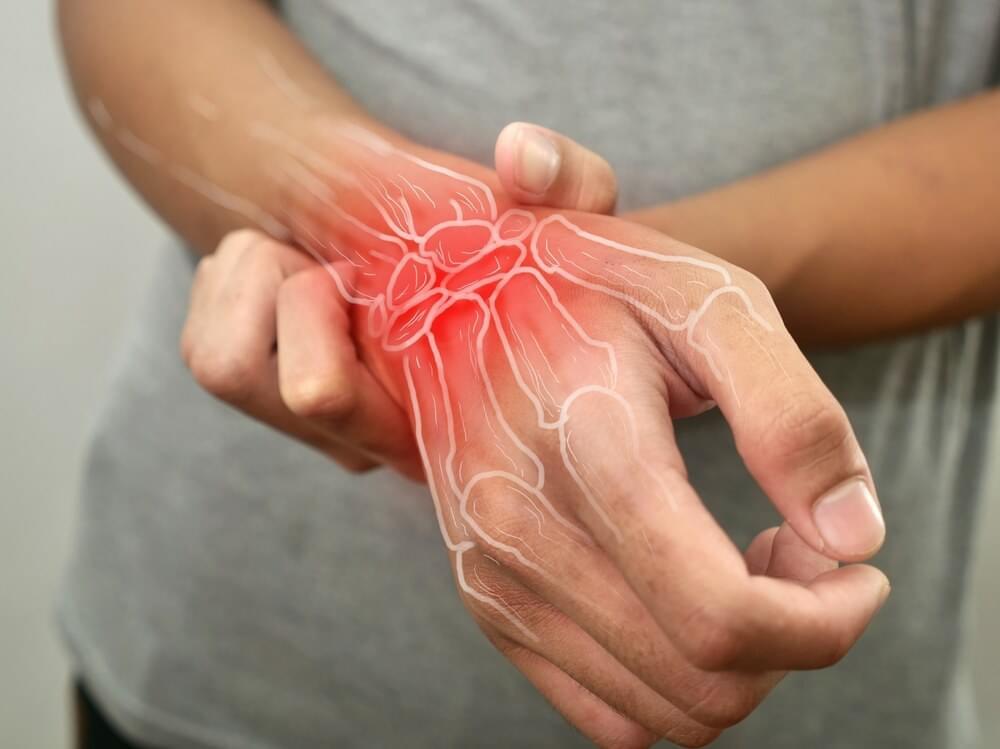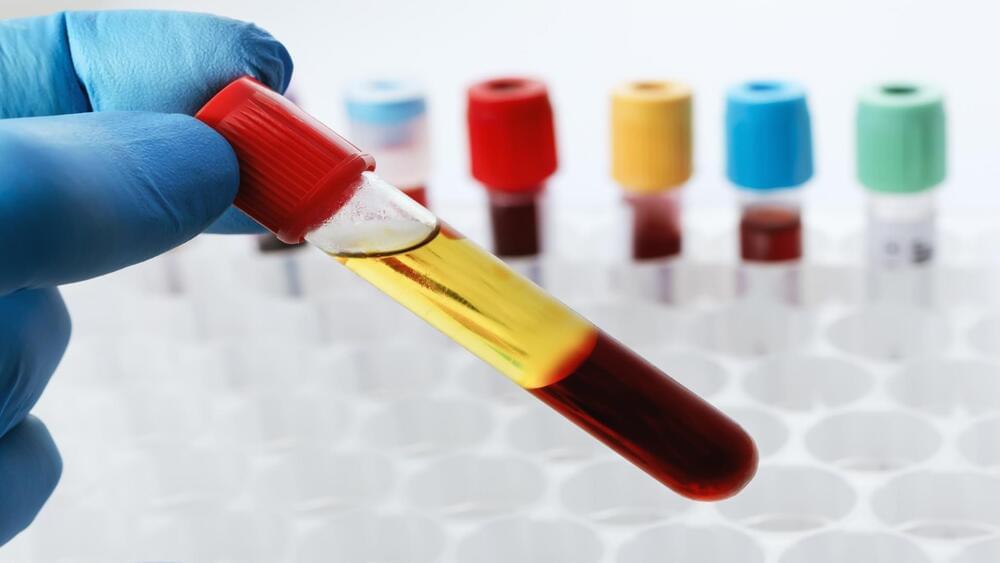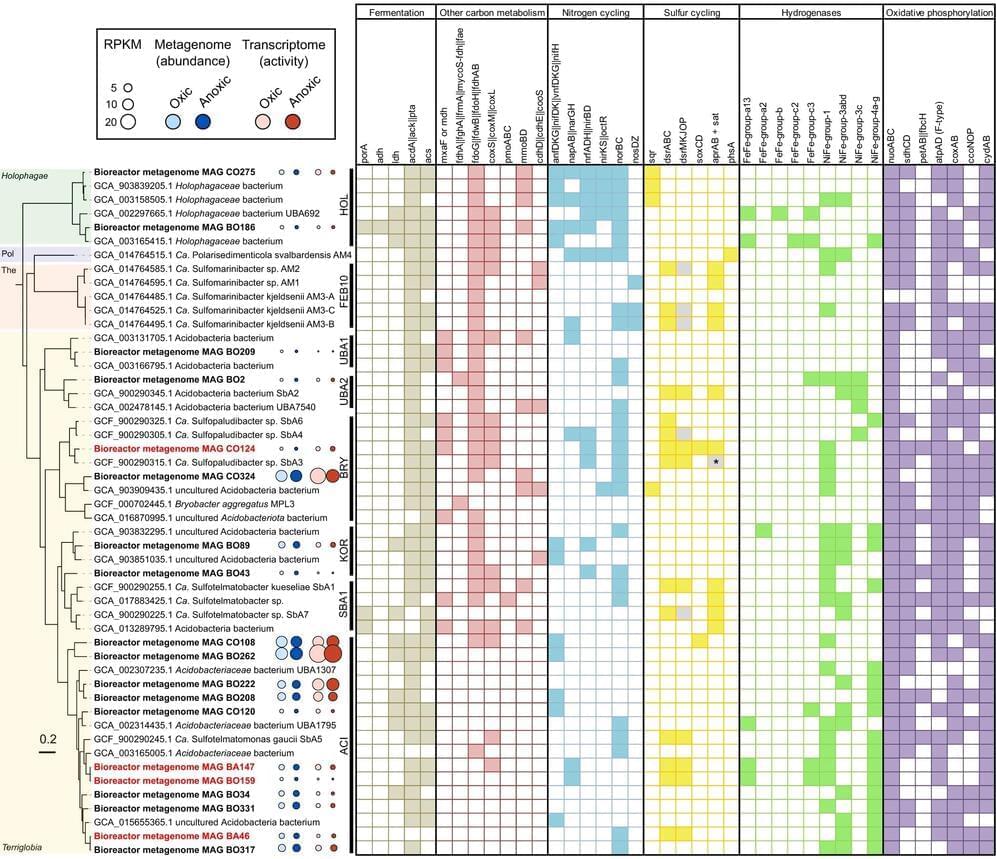Researchers in South Korea developed a technique for encapsulating NK cells in a hydrogel that could be 3D printed into a porous shape and later implanted at the site of a removed tumor..
A new 3D-printing-based approach could unleash a cutting-edge immunotherapy against solid tumors, which account for 90% of all cancers.
Natural killers: Some immune system cells only know to attack a threat if they’ve encountered it at least once before (or been instructed to attack it by other cells that have). Natural killer (NK) cells, however, can recognize diseased cells the first time they cross paths with them — and then alert other members of the immune system, too.
This makes them a valuable first-line defense against illness, but, unfortunately, cancer cells multiply too fast and NK cells die too quickly for them to outright stop many cancers from spreading.
